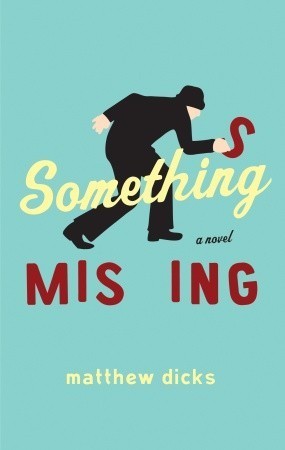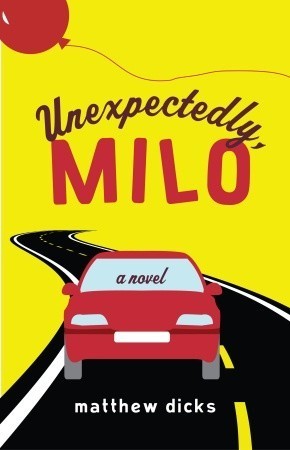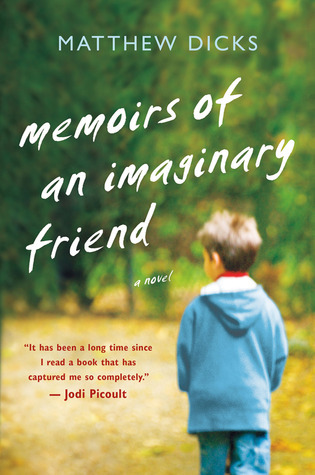Matthew Dicks's Blog, page 298
September 23, 2016
The first person to listen to my nonsense and predict that I would be a writer has passed away
My former high school vice principal and Toll Gate principal Stephen Chrabaszcz passed away unexpectedly on Thursday.
I am so saddened over this news.
Those who knew him said Chrabaszcz, who became a principal in 2006, shared his cellphone number with students, parents and staff, and would work weekends to meet with parents who could not meet with him during the week.
“He was fixated on Toll Gate pride,” Tober said, adding that Chrabaszcz was at every school-related event, from parent-teacher conferences to an away game in Burrillville.
“He brought that level of commitment and pride to what it meant being part of Toll Gate,” Tober said.
— Providence Journal
As a vice principal, Mr. Chrabaszcz was one of the first adults in my life who was willing to listen to my nonconformist, occasionally subversive ideas and debate me in a real and sometimes heated way. Rather than dismissing my complaints or ignoring my explanations, Mr. Chrabaszcz engaged with me. We went toe-to-toe on many issues. We raised our voices and stood our ground.
I loved every minute of it.
When I argued, for example, that I should not be required to type my term papers because I didn't own a typewriter and was denied access to the machines at school because I had chosen to take a geography class rather than a typing class, he listened. He pushed back. He probed my thinking. He investigated my claims. Ultimately, he agreed with me, and as a result, teachers were no longer permitted to require students to type their term papers unless those students were guaranteed access to the school machines for a reasonable amount of time.
I didn't type another paper that year.
I wrote about this debate and his decision in the school newspaper in a piece called "The Right to Write." It was in many ways my first real piece of writing. It was the first time I had expressed my opinion in a voice that sounded like my own. It was argumentative. Nonconformist. Unconventional. Angry, even. It represented a challenge to authority. It argued in defense of the have-nots.
The morning that the piece was published, Mr. Chrabaszcz pulled me out of my English class. Standing just outside the door to the classroom, he held the newspaper up in front of me, shook it, and said, "You need to learn to type, dummy. You're going to be a writer someday."
This was an enormous moment for me. Mr. Chrabaszcz was the first and only adult from my childhood who spoke to me about my future and my potential. Parents, teachers, and guidance counselors would abandon me, but Mr. Chrabaszcz believed in me. There were moments on my long and seemingly impossible journey to college when those words outside that classroom kept me going.
Three years ago, after befriending a Toll Gate High School student who read my books and initiated a long, ongoing exchange of emails of me, I visited Toll Gate High School to talk with students about writing, and during the visit, I met with Mr. Chrabaszcz, who was the principal. He remembered me well from my high school days, and from what I could see, he hadn't changed much. Energetic, enthusiastic, and always quick to the point, he was thrilled to hear that I had become the writer he predicted I would be, but he was even more excited about my teaching career.
Since that visit, we have been exchanging emails with Mr. Chrabaszcz about education, writing, leadership, and our lives. I treasure every one of our exchanges.
Stephen Chrabaszcz was a great leader and a better friend who helped to shape my life.
He will be missed.

September 22, 2016
Write the thing that only you can write
A bit of writing advice:
If you hope to be published someday (or even write something good), write the thing that only you can write.
There are better writers than you in this world. Writers better than you at crafting sentences and capturing moments and making readers laugh and cry and emote. Writers capable of manipulating and assembling words in an order that will always be better than your order.
If your plan is to be the best writer, forget it. There is only one best writer, and it's probably not you. It will probably never be you. You'll probably never crack the top 10 or the top 100 or even the top 1,000 writers alive today.
There's simply too many people and too much talent in this world.
But all is not lost. You can still succeed.
The way to separate yourself from the pack and find readers willing to read you is to find the stories that only you can write.
Find the stories that define you as a human being and a writer.
Find the stories that only your specific heart and mind can create.
This means that imitation will not work. It means that the books you love to read might not be the books you are able to write best. It means that your dream to by a mystery writer or thriller writer or romance writer might need to die in order for your dream of being a published, well read writer to flourish.
For me, this means writing about protagonists who live on the fringes of society. The misfits. The rejects. The unnoticed and unseen. I tend to write about human beings with great, unrecognized, unrealized potential. Nonconformists. Voices yearning to speak. The unsung heroes.
This is my bread and butter. These are the characters who I seem to understand. The people who I am able to easily inhabit. I find characters who I understand, and the plots of my stories flow from these imaginary people.
It also means writing quirky stories filled with humor but also with moments that are likely to make a reader cry. I never dreamed of writing stories like this. I was sure that I would be a writer of thrillers and science fiction.
Serious-minded books about serious things.
Once I tossed aside thoughts of writing in these genres and allowed the stories that only I can write to rise to the surface, I found success.
For me, it also means writing stories of the absurd. Stories of the ridiculous made plausible. Fantasy made real.
A few years ago, I was challenged by a friend to write a poignant, realistic story about a team of soccer players without arms. An odd request, but one that I thought was perfect for my sensibilities.
Three days later, I finished the first draft of a short story that met the goals of the challenge. It's an awaiting-to-be-published story that I love and the friend who challenged me admits is shockingly poignant, completely believable, and terribly disturbing.
When I accepted the challenge, I felt like I was the only person who could write that story well. I was the only person who could imagine a world in which armless soccer players could believably exist.
This is what you must do. Find the story that only you can write, and bring all of your talent, skill, and effort to bear in writing it.




September 21, 2016
If you want to have a say in education, become an educator
Attention politicians, policy wonks, educational advocates, professors of education, and anyone else who wants to have a say in education:
"Every human being who wants to have an opinion of American education ought to spend some time as a substitute teacher."
- Nicholson Baker, the author of Substitute, who served as a substitute teacher for a year in order to write his book and understand the challenges and rewards of teaching

September 20, 2016
Policing the national anthem makes you a self-righteous jerk
This isn't a post about the athletes who are kneeling or sitting during the singing of the national anthem. When it comes to that particular form of protest, I would personally prefer that they find a different way to draw attention to a very important issue, but I also recognize and respect their right to protest in the way they choose.
No, this is about the jackass who was four rows behind me at the Patriots game on Sunday and all the jackasses like him who I have seen and listened to over the years. As the national anthem began to play, this man began shouting at several fans in the seats below us who had forgotten to remove their caps, ordering them to do so in a harsh, arrogant, and unforgiving fashion.
During the singing of the anthem, mind you.
Most of these fans sheepishly removed their caps, some motioning apologies to the jackass for their mistake, but one man left his hat atop his head. Instead of removing it, he slowly turned and smiled at the jackass behind me, who was still shouting even though the world famous opera singer who was singing the anthem was at least 16 bars into the song by now.
I don't think the smiling man's refusal to remove his cap was a genuine protest. I don't think he decided to leave his cap on during the singing of the national anthem to make a statement.
I think he just forgot to take it off.
I also suspect that he was annoyed by the jackass a dozen rows up who had declared himself to be the cap police. I suspect that he - like me - thought that the decision to interrupt the national anthem by barking out orders was more disrespectful to our nation's flag than any failure to remove a head covering.
I admired the smiling man who chose to leave his hat on. I loved that guy. His was not a protest against police violence or racial disparity or economic inequality. His was a protest against the idea that the guy with the loudest voice and the thickest neck gets to tell anyone what to do, regardless of location or circumstances. His was a protest against the idea that conformity cannot be dictated by some self-righteous, self-assigned arbiter of what is right and wrong.
That smiling man's decision to leave his cap on his head and grin at the jackass was both courageous and admirable. In almost every other circumstance, I would have preferred for the smiling man to remove his cap. But when faced with a barking jackass who thinks he can dictate the behavior of others through volume and aggression, I think he did the right thing.
Honestly, I almost put my cap back on. Had I been farther away from the jackass and slightly more courageous, I might have done exactly that.
Respect for the nation's flag means removing your cap during the national anthem, but it also means shutting the hell up while the anthem is being sung and allowing people to leave their caps on if they so choose.
There's nothing more enjoyable than watching a beefy, loud-mouthed jerk be neutered by a hat and a smile.

September 19, 2016
Styling advice from a fifth grader
I received advice on my hair from a student this week in the form of a post-script.
Sadly, he was stone-cold sincere.

September 18, 2016
Shouldn't yellow raincoats the only appropriately colored raincoats?
School buses are most often painted yellow because the color attracts attention and is noticed quickly by peripheral vision. In fact, the human eye detects yellow faster than any other color.
Scientists describe this as follows: "Lateral peripheral vision for detecting yellows is 1.24 times greater than for red."
For this same reason, raincoats are often yellow. In the low visibility of a rainy day, you want pedestrians to be as visible as possible to those behind the wheel of vehicles.
This leads me to wonder:
Based upon this data, shouldn't every child's raincoat be yellow? If we're going to paint vehicles that are 45 feet long and nearly impossible to miss yellow so they will be even more impossible to miss, shouldn't we be encapsulating our three foot tall bundles of randomness in cocoons of yellow to protect them, too?
If red, blue, pink, and green raincoats are not as readily detected by motorists, operators of heavy machinery, garbage collectors, cyclists, pilots of exceptionally low flying aircraft, and folks on horseback and camelback, what kind of monster would dress their precious little child in anything by a yellow raincoat?

September 17, 2016
Water Street Bookstore appearance
This summer I spoke at the Water Street Bookstore in Exeter, NH about my latest novel, The Perfect Comeback of Caroline Jacobs. A local television news crew recorded the event and posted it to YouTube.
If you've always wanted to attend one of my book events but haven't been able to, here's your chance (though honestly, every book talk is different because I tell different stories at each one).
Still, better than nothing!
September 16, 2016
A trip to the plumbing store, because that's where all kids want to go. Right?
My son's ongoing obsession with water treatment facilities, electrical grids, and underlying infrastructure of our world (and more recently, the human body) perhaps reached its apex this week when he asked my wife to stop at a plumbing supply store so he could examine the items in stock.
Credit my wife for taking the time to stop and allow him to satisfy his curiosity. I'm not sure where all this interest in infrastructure will lead, but hopefully it includes an enormous college scholarship and a lifetime of gainful employment.




September 15, 2016
Every time I tie my shoes...
Here's a little secret about me that I've never shared with anyone before:
Every time I tie my shoes, I think of Mrs. Carroll, the teaching assistant who sat at a table in the hallway between Mrs. Dubois and Mrs. Roberge's kindergarten classroom at John F. Kennedy Elementary School in Blackstone, MA.
Mrs. Carroll taught children like me a myriad of life skills like zipping up your own coat, memorizing your phone number, and tying your own shoes.
I can remember sitting in that hallway like it was yesterday, learning to cross and loop laces until I could tie my own shoes without any instruction. Without even looking.
I was five years-old when Mrs. Carroll taught me a skill that I still use today.
Every time I tie my shoes, without exception, I think about Mrs. Carroll. I can see her sitting across from me, glasses perched on her nose, determined and unwavering, insisting that I master this skill before first grade.
Teachers never know how long their lessons will live in the hearts of their students.

September 14, 2016
The Most Poorly Named Character in All of Literature
Willy Wonka.
Charlie Bucket.
Augustus Gloop.
Veruca Salt.
Violet Beauregarde.
Grandpa Joe.
Grandma Georgina.
The Oompa Loompas.

Amazing, perfect, ingenious character names from Charlie and the Chocolate Factory, written by master storyteller Roald Dahl, who was born 100 years ago today.
And then, for reasons I will never understand, there was Mike Teavee, a boy addicted to television.
The worst character name in all of literature. The most blunt, overwrought, self-evident, unsubtle, uncreative name ever.
After all of those amazing, unforgettable character names, Dahl settles on Mike Teavee for a boy who loves TV?
Where was his editors when he needed them most?



